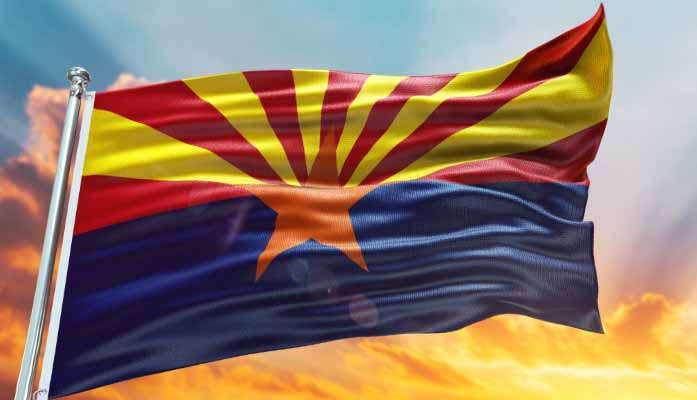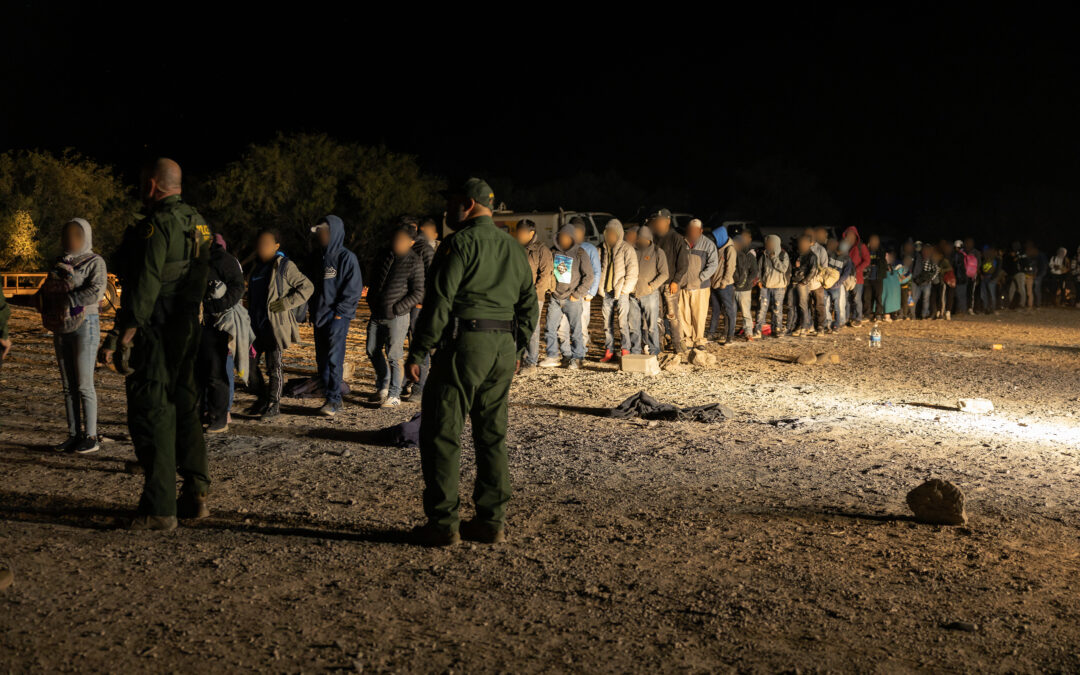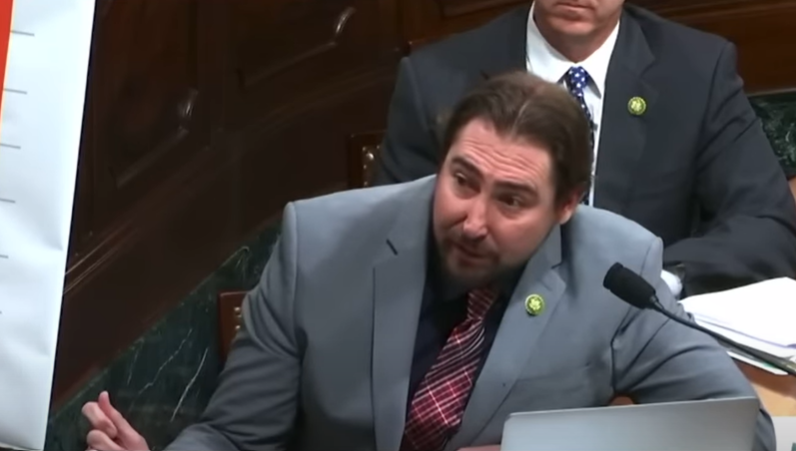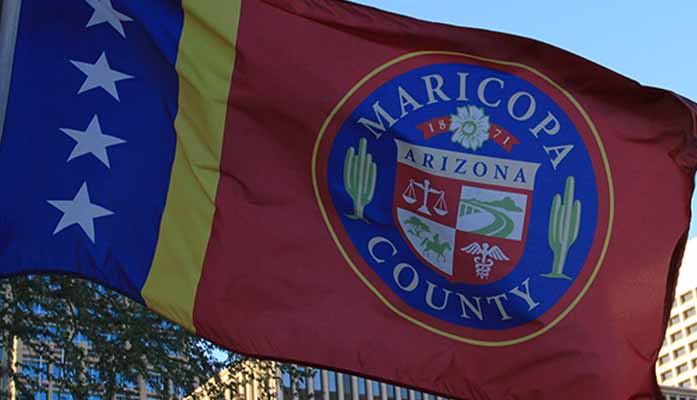
by Matthew Holloway | Jan 16, 2025 | Economy, News
By Matthew Holloway |
The 2025 Free Enterprise Report from the Common Sense Institute Arizona (CSI) was released Monday and ranked the state of Arizona amongst the states in education as well as the new indexes of economic performance and economic momentum.
According to Katie Ratlief, Executive Director of CSI Arizona, “Arizona continues to lead the way in key areas like tax policy, state budgeting, and educational choice, proving the impact of data-driven, common-sense policies.”
“However,” she added, “challenges in housing, public safety, and homelessness are beginning to slow our momentum. While Arizona remains a top destination for growth, addressing critical issues like crime and the housing crisis will be essential to sustaining our competitiveness. Fortunately, the policies that fueled much of Arizona’s success are still in place, and with a renewed focus on data-driven solutions to address issues like crime and housing, Arizona can solidify its position as one of the most competitive states in the nation for years to come.”
The report details Arizona’s positioning in the emerging recovery of 2025, particularly highlighting the success of the state and its persistent momentum. In an overall measure, the state ranked 27th in “free enterprise competitiveness,” with CSI emphasizing advances in taxes, state budgeting, energy and education, but noting the heavy limitations imposed by housing shortages and rising costs.
In education, Arizona ranked second in the nation in share of students enrolled in school choice options, seemingly ratifying the state’s first-in-the-nation universal Empowerment Savings Account (ESA) program which now provides financial support to over 83,000 families.
The report noted, “Arizona today has the most open K-12 educational market in the country, and hosts a diverse network of District, Charter, and private school options. Since the pandemic, its home- and microschool space has expanded rapidly. Today, about a third of Arizona’s K-12 students are not enrolled in the traditional District school system.”
The report also highlighted Arizona’s Energy situation, noting in a post to X, “Arizona remains a top 20 state for energy competitiveness, boasting one of the most reliable electricity grids in the nation.”
CSI explains, “Thanks to maintaining the nation’s largest nuclear power plant and the moderate and deliberate pace of adoption of wind and solar energy sources (supplemented by robust investment in natural gas), the state’s electrical grid remains reliable and affordable.”
Finally, Arizona’s advantageous tax system was highlighted with the 2.5% flat income tax and property tax instant depreciation of business investments cited in particular for contributing to an extremely competitive tax and regulatory system. Arizona ranked 7th in the nation on the Taxes & Fees Competitiveness Index.
The report observed, “Arizona has significantly reduced its tax burden in recent years, most notably by adopting a 2.5% flat personal income tax rate. This reform cut the top marginal tax rate from 4.5% to 2.5%, simplifying the tax code and making Arizona one of the most competitive states for income taxation.”
Looking to the future, CSI pointed to the steps Arizona legislators have taken to insulate the state against capricious tax hikes, explaining “this tax structure is well protected. Rules requiring supermajorities for statewide tax increases by the State Legislature were extended in 2022 to initiatives and referendums that would have voters approve the tax increases.” The report continues, “Arizona’s competitive ranking for its tax structure is not only unlikely to get worse but may improve (even if further reform is more incremental) due simply to the relative erosion of the position of other states that lack these structural protections.”
Matthew Holloway is a senior reporter for AZ Free News. Follow him on X for his latest stories, or email tips to Matthew@azfreenews.com.

by Matthew Holloway | Jan 14, 2025 | News
By Matthew Holloway |
Republican Arizona Congressmen Andy Biggs (R-AZ-1), Abe Hamadeh (R-AZ-08), and Eli Crane (R-AZ-05) have co-sponsored the first bill by freshman lawmaker, Rep. Brandon Gill (R-TX-26), the REMAIN in Mexico Act. If enacted, it would cement the first-term immigration policy championed by President-elect Donald Trump. They were joined by 77 other Republicans co-sponsoring the bill.
According to Gill, the “Remain in Mexico” policy, officially known as the migrant protection protocols, was first implemented by the Trump administration in January 2019. This set of policies allowed federal authorities to return non-Mexican asylum-seeking illegal immigrants to Mexico to await immigration proceedings.
The new bill will require the Secretary of Homeland Security to reinstate the Migrant Protection Protocol in accordance with 2019 Homeland Security documentation titled “Policy Guidance for Implementation of the Migrant Protection Protocols.”
“President Trump’s Remain in Mexico policy was extremely successful, resulting in fewer illegal border crossings, fewer fraudulent asylum claims, and more deportations,” Gill explained in a statement. “But immediately after taking power in 2021, Democrats undid nearly all of President Trump’s border protection policies, unleashing mass chaos and destruction throughout our heartland.
Over the past four years, the Biden administration has allowed over 10 million illegal aliens to invade our country, and critics say it prioritized criminal illegal aliens over law abiding American citizens.
As a result, says Gill, “illegal aliens are murdering, raping, and pillaging American citizens.”
“This must end now,” Gill said. “The American people gave President Trump and Republicans a mandate to secure our border, and Congress must pass the REMAIN in Mexico Act as a first step to secure our border and fix the problems Democrats created in our country.”
In a statement to AZ Free News, Rep. Crane commented, “This legislation is common sense. It codifies one of President Trump’s most successful policies, which was foolishly reversed under the open-borders Biden regime.”
“It’s outrageous that some of our leaders can’t be trusted to prioritize the security of American citizens, making this legislation necessary,” continued Crane. “I’m proud to cosponsor this bill that puts America first.”
In a subsequent interview with Newsmax, Gill wrote, “The REMAIN in Mexico Act is common sense legislation that would stop the deluge of illegal aliens pouring into our country. We now have over 80 Republican co-sponsors. I hope some of my colleagues from across the aisle will join us, but we can pass this bill with or without Democrat support.”
Fellow freshman Congressman Hamadeh shared the bill to X with a similar sentiment, “I’m proud to champion this vital bill to help keep our communities safe and codify the policy that made President Trump’s America much safer than Joe Biden’s.”
Matthew Holloway is a senior reporter for AZ Free News. Follow him on X for his latest stories, or email tips to Matthew@azfreenews.com.

by Matthew Holloway | Jan 14, 2025 | News
By Matthew Holloway |
A new study based on FBI crime data has identified the areas most afflicted by crime in the state of Arizona and found Mohave County to be a crime hotspot.
According to the research by Suzuki Law, through analysis of crime rates per 100,000 residents in each county’s jurisdiction, Mohave County ranked highest followed by Pima and Yuma Counties, La Paz County, and finally Maricopa County rounding out the top five.
The report found:
- “Mohave County holds the top place with a total crime score of 99.54. Its monthly average property crime rate is 167.9 per 100,000 residents, about 121% above the statewide average of 76.1. The county has a violent crime rate of 108.5, roughly 74% higher than the statewide average of 62.2.
- Pima County follows in second place with a total crime score of 88.27. The average monthly property crime rate stands at 168.2 per 100,000, the highest among all counties in Arizona. On the other hand, the county’s violent crime rate of 83.7 is 35% above the statewide average of 62.2.
- Coming in third, Yuma County has a crime score of 86.86. Its average monthly property crime rate of 124.0 per 100,000 is nearly 63% above Arizona’s average. Yuma County has the highest violent crime rate in Arizona, at 109.3. This is around 76% higher than the statewide average of 62.2.
- La Paz County ranks fourth with a crime score of 79.43. Here, the monthly property crime rate is 140.5 per 100,000, about 85% more than the state average of 76.1, and the violent crime rate of 82.3 is 32% above the state average of 62.2.”
A spokesman for Suzuki Law commented on the clear disparity favoring crimes against property saying, “The data indicates that property crimes are a major issue in Arizona, especially in counties like Mohave, Pima, and Yuma. While all types of crime have serious implications for community safety, the prevalence of property offenses in these counties demands focused attention from law enforcement and policymakers.”
Maricopa County, despite the obvious handicap of having the largest population by far, ranked relatively low at fifth place with an property crime rate of 105.6 per 100,000, about 39% higher than the state average of 76.1 and with violent crime at 71.3 or about 15% over the state average of 62.2.
In the top ten ranking, five counties are notably absent: Pinal, Apache, Graham, Navajo and Santa Cruz.
Top 10 Arizona Counties by Overall Crime Rate Score
1. Mohave County — 99.54
2. Pima County — 88.27
3. Yuma County — 86.86
4. La Paz County — 79.43
5. Maricopa County — 63.99
6. Gila County — 61.62
7. Yavapai County — 54.10
8. Cochise County — 46.21
9. Greenlee County — 43.20
10. Coconino County — 39.08
The law firm suggested that the installation of proactive security measures are among the most effective deterrents but stressed the need for legal assistance for victims. “Installing home security systems is one of the most effective ways to protect your property, with studies showing it can reduce burglary risks by up to 60%.” The attorneys also called for personal vigilance, situational awareness, and the avoidance of high crime areas.
Community-led initiatives are also valuable. “Neighborhood watch programs have proven to reduce crime rates by 16% in participating areas,” they observed.
The Mohave County Sheriff’s Office was contacted to comment on this report but did not reply by the publication deadline.
Matthew Holloway is a senior reporter for AZ Free News. Follow him on X for his latest stories, or email tips to Matthew@azfreenews.com.

by Matthew Holloway | Jan 13, 2025 | News
By Matthew Holloway |
With his oath of office once again taken, incumbent Republican Congressman Eli Crane (AZ-02) announced he will be returning to the House Committee on Homeland Security. He will join fellow SEAL Rep. John McGuire (R-VA-05) and Congressional Freshman Class President Rep. Brandon Gill (R-TX-26) on the House Committee on Oversight and Accountability.
“I came to Washington to drain the Swamp and fight to secure our border. In the 119th Congress, I’ll be a committee member of both Oversight and Homeland Security, playing a direct role in fulfilling both of those objectives,” said Crane. “It’s an immense honor to, once again, to serve and represent the People of Arizona’s 2nd Congressional District. I will forcefully keep up the fight to put Arizonans and Americans FIRST.”
Crane’s subcommittee assignments have not been released as of this writing, however during his last term with the Homeland Security Committee he served on the Subcommittee on Counterterrorism, Law Enforcement, and Intelligence, and the Subcommittee on Oversight, Investigations, and Accountability.
Congruent with his assignment to the Homeland Security Committee, Crane released a statement the same day after the passage of the Laken Riley Act, which as the Congressman described, “would allow state attorneys general to sue the Secretary of Homeland Security for injunctive relief if immigration actions such as parole, violation of detention requirements, or other policy failures harm that state or its citizens.” The bill, if signed into law, will also update federal law making it mandatory for Immigration and Customs Enforcement (ICE) to issue detainers and take custody of illegal aliens who commit theft-related crimes, such as shoplifting, under state and local law.
“I’m pleased to report that the Laken Riley Act passed out of the House of Representatives. This bill will protect our communities and give our law enforcement agencies the resources they need to prevent avoidable tragedies,” said Rep. Eli Crane. “It’s appalling that 159 Democrats sided with criminal aliens by voting against this commonsense measure. Despite their senseless opposition, I’m glad we were once again able to get this bill across the finish line. I appreciate Rep. Mike Collins for his leadership, and I look forward to its swift passage in the U.S. Senate before heading to President Trump’s desk.”
Matthew Holloway is a senior reporter for AZ Free News. Follow him on X for his latest stories, or email tips to Matthew@azfreenews.com.

by Matthew Holloway | Jan 13, 2025 | News
By Matthew Holloway |
Growers Market, a composting business located in Laveen, will be shuttering its operations in South Phoenix as a direct result of legal action brought by the Maricopa County Board of Supervisors.
According to a release from Maricopa County, the operators of Growers Market concluded an agreement with the Board that they be prohibited from operating the firm’s composting facility on the Laveen property involved in the legal complaint. The company also agreed to a series of strict stipulations imposed by the county that will result in the business’ operations being shut down rapidly and the composting material removed from the land.
As reported by ABC15, the facility, located near 27th Avenue and Dobbins, was first mentioned in a legal complaint against Growers Market on December 18th. According to the order obtained by ABC15, the court found the composting operation to be in violation of the property’s RU-43 zoning designation adding, “A composting operation is not authorized in that zoning designation without a special use permit. Defendants had neither applied for nor received a special use permit allowing the use of the Property for a composting operation. Maricopa County Zoning Ordinance (MCZO) sections 501 & 503.”
The county issued a Notice and Order for the owners to comply with the zoning in August and issued a hearing summons in September for the violation. On November 8th the hearing officer issued a Judgment and Order finding the business in violation of zoning, and the order was not appealed.
In a statement released to the press, Supervisor Steve Gallardo, who represents District 5 where the property is located, said, “This settlement is a big win for Laveen community members. This business could have continued operating for months while we waited around for court hearings to be scheduled. Instead, we took complaints seriously, took action to hold this business responsible, and prioritized results.”
Under the terms of the court order, the business must vacate the property by no later than March 1st or face fines of $1,000 per day. Growers Market will be authorized to begin processing all material on the land until January 20 when grinding or screening of mulch material must cease and all related equipment must be removed from the property.
Until the property is cleared, the county advised, Growers Market is permitted to haul off remaining mulch and materials Monday though Friday between 7am and 5pm through the March 1st deadline but must submit to regular inspections and provide weekly progress reports to County officials.
“Look, I support small businesses and want to see them thrive,” Gallardo began. “But when their operations start to affect the health and well-being of local residents, we have to get involved and put an end to it. I’m thankful for the sense of closure this settlement provides so Laveen residents can get back to their normal lives.”
According to the order, the property is anticipated to be used as a tree farm after the cleanup is complete.
Matthew Holloway is a senior reporter for AZ Free News. Follow him on X for his latest stories, or email tips to Matthew@azfreenews.com.





